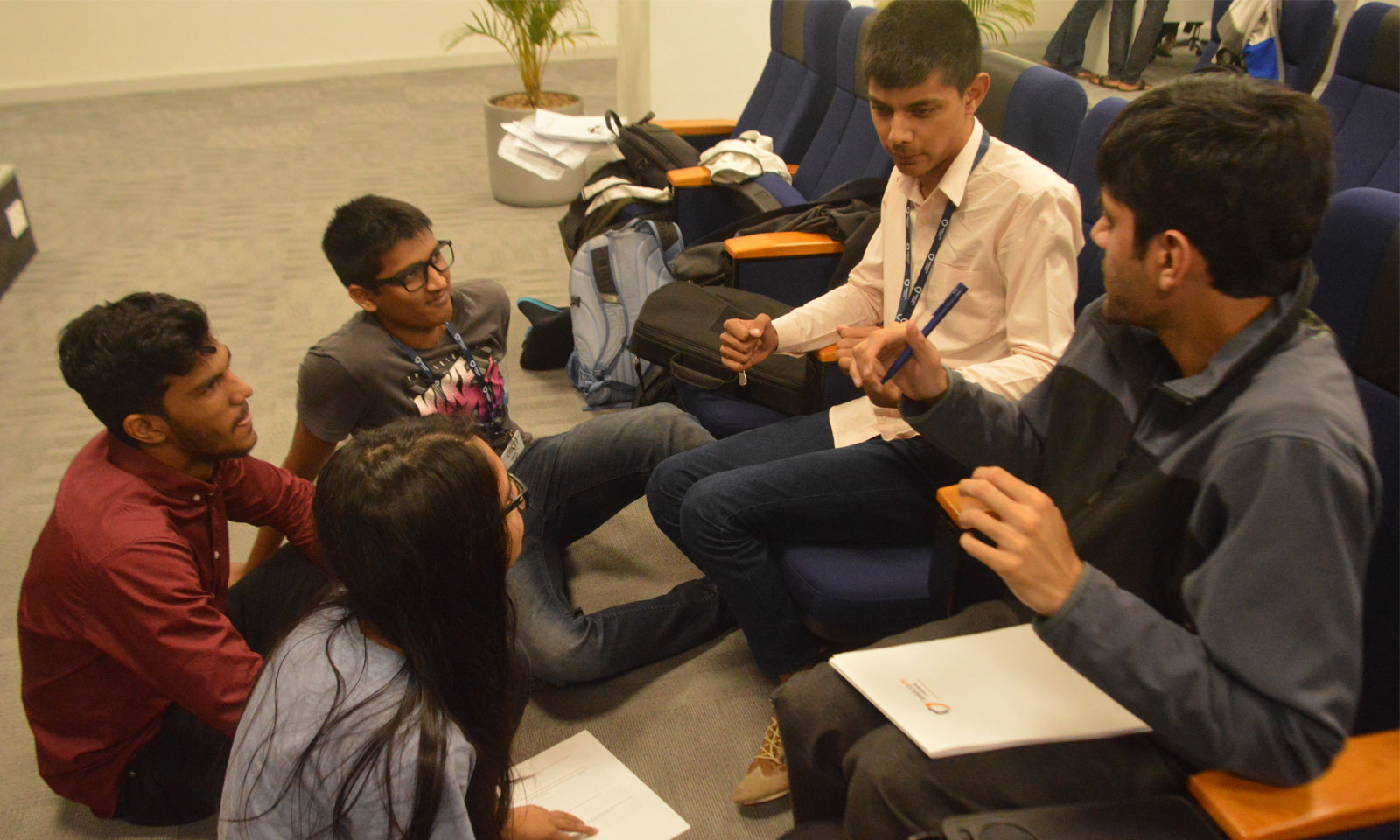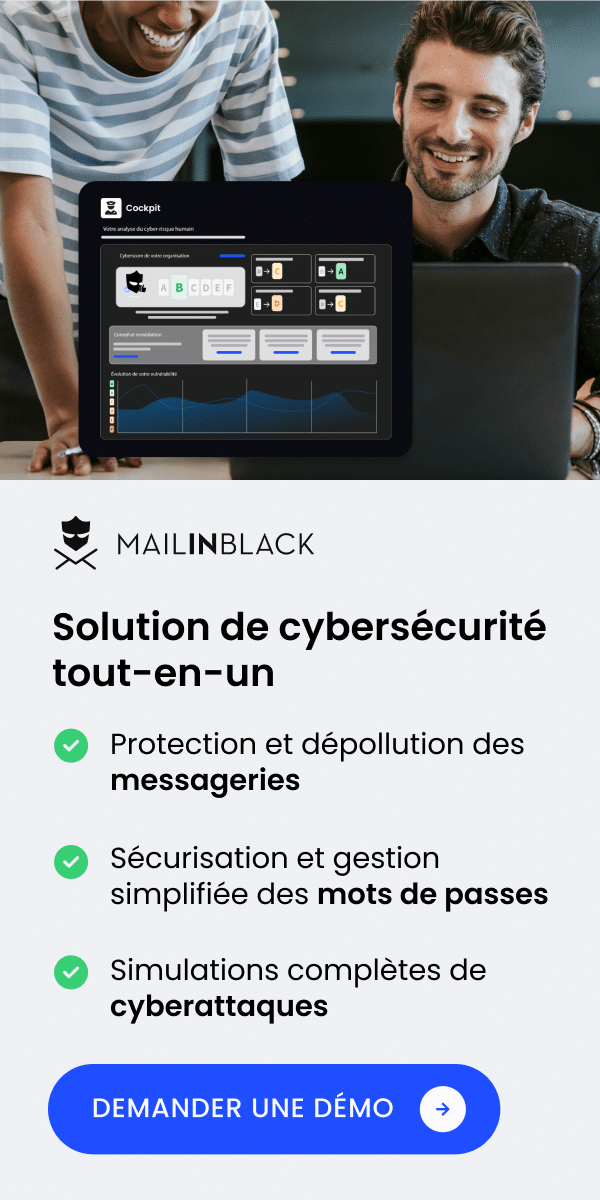One of the world’s most prestigious universities, the Massachusetts Institute of Technology (MIT) is currently collaborating with Telecom Mauritius and offering a handpicked few young people an incubation program hosted by the Telecom Campus in Ebène.
What is MIT GSL?
The GSL (Global Startup Labs) program brings together young people with an entrepreneurial spirit to transform their idea into a startup, all centered on the theme of new technologies. Students benefit from MIT’s free resources as they walk them through all the steps of creating their business for 8 weeks (June 19 – August 11, 2017).
MIT instructors, local entrepreneurs, and speakers coach and encourage the student groups and use tools that will give participants a strong credibility and a powerful springboard to launch their start-up. Thanks to workshops, interactive courses, weekly spitchs and external interventions, they gradually acquire the entrepreneurial reflexes that will serve them well beyond this training. They conducted effective market research before starting to work for an intensive month on a prototype. Meeting with three groups of young entrepreneurs who present their project and their vision of the program.
3 promising bands
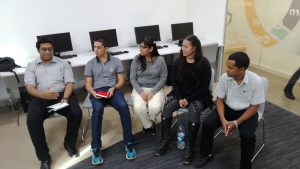
The first team we met was Virtual Coach. Made up of Damien Mallet, Poonam Curpen, Akasha Rojee, Nigel Rambhujun, and Akshay Tarolah, it aims to revolutionize the way we exercise: after talking to various gym members, their group finds that many users stop exercising due to lack of time, motivation, or coaching. So they thought of a brand new application that will give a new motivation and sports education to the users thanks to a movement analysis technology. This will make it easier for users to understand the exercises and train more effectively.
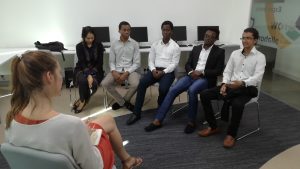
Then it was the group of Shameer MC Ramdin, Tabi Okorn-Tabi, Wisdom Odofin, Obi Arinzechukwu who presented their project. Their goal is to develop an augmented reality solution for students. They want to help future doctors to have a better understanding of complex molecules and chemical components. For this, they propose a mobile application that will transform 2D images into 3D content and animated images. After noticing that medical students often had difficulty visualizing the elements of their courses, they decided to take action to make the content more interactive, and therefore understandable.
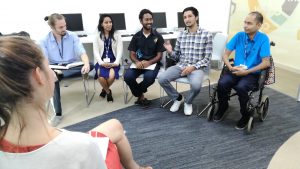
Finally, Rishi Gujadhurh, Manish Dhaliah, Nayar Joolfoo, Choomanee Runnoo and Arun Teelock spoke about BIO-SPHERE, an energy management and conservation company. They offer an innovative solution to the problems of excessive energy consumption in large institutions such as hotels. A device connected to the electrical components of a building will be able to give the energy consumption of the latter in real time.
Mid-course apprenticeships
What do these groups have in common? Thanks to their keen analysis of the market and their personal experience, they are now able to propose innovative digital solutions: Manish Dhaliah, wanted to analyse the excessive consumption of electricity in his home, a former medical student was confronted with the problems of illustrating complex molecules and Nigel Rambhujun, a sports enthusiast, tried to find a solution to dropouts in this field. He explains that a key point of the entrepreneur’s work is to determine “whether the basic idea is a problem.
Manish Dhaliah backs this up by explaining that “projects have legitimacy when they come to help solve this problem.”

Another element that the students had to learn was Open-mindedness and question ing: “You think the project is great, but you realize it’s not necessarily going to work. You have to go through the motions, change your mind, learn from your failures,” says Rojee.
Damien Mallet explains: “For two weeks, we changed ideas every day.
The projects have continued to adapt. The energy saving project, for example, was initially aimed at individuals before the team realised that targeting larger structures would be more effective. Being pushed out of one’s comfort zone allows one to think differently.
The synergy created by the sharing between students, professors and professional entrepreneurs taught the students to work as a team. In four weeks, their way of thinking has already changed a lot. For Rishi Gujadhurh, it is the exchange that allows one to evolve in entrepreneurship. Arun Teelock underlines the efforts made by the mentors to involve actors of the Mauritian ecosystem whose experience represents a real opportunity.

The young entrepreneurs were also confronted with the problem of the profitability of their projects. How to develop solutions with a positive social impact while generating revenue? Once again, a lot of soul-searching led to some adjustments for the teams.
For Tabi Okorn-Tabi, of Nigerian origin, “one of the benefits of training in Mauritius is to discover a different ecosystem, and to adapt to it.”
The teams were all able to see the advantages and disadvantages of doing business in Mauritius: Today, the country is favourable to young entrepreneurs and it is a place with a well-developed infrastructure – internet, electricity, hotels -. On the other hand, since the population is limited, students wonder about the profitability of their projects. Some are therefore considering using Mauritius as a springboard to other African countries.

The next step for the students is to develop a prototype in order to get feedback from the users and to adapt to their needs. For now, the students consider that “the lack of sleep is worth the cost”. We wish them the best of luck in the few weeks before their project becomes a reality.

